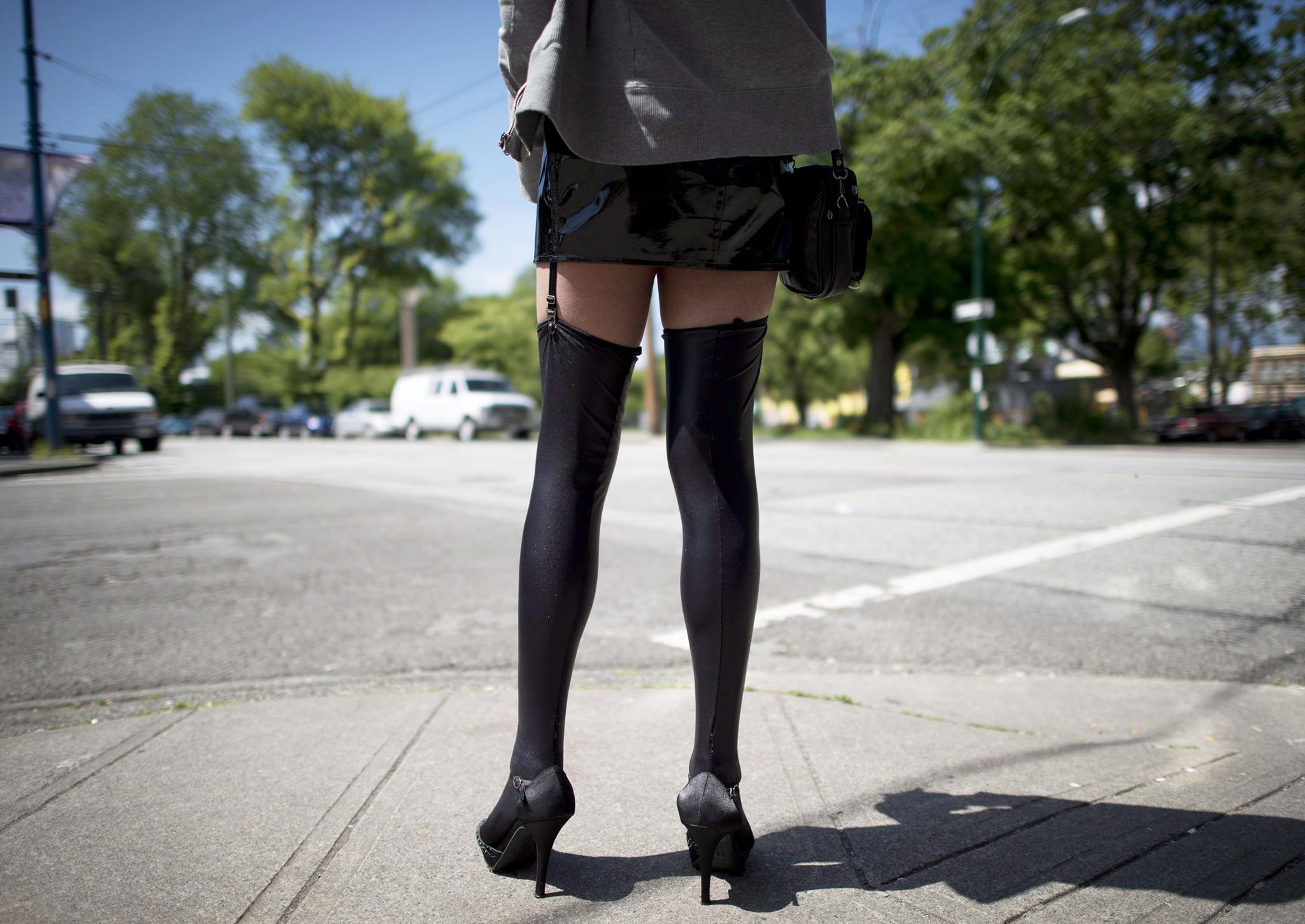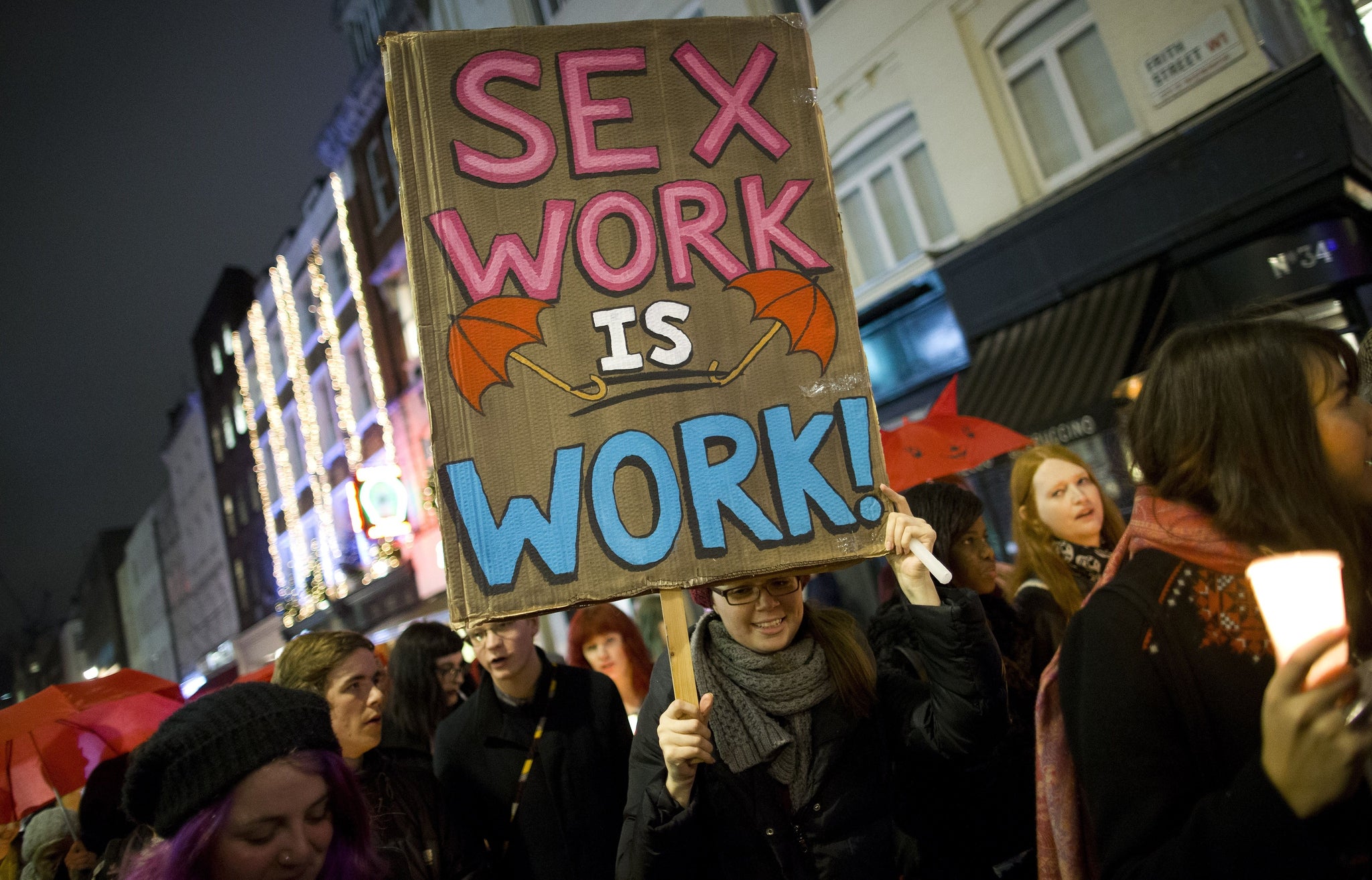Here's why we at Amnesty backed the decriminalisation of sex work
Our new stance is not about protecting pimps, or condoning a world that leads people onto the streets without a choice

Your support helps us to tell the story
From reproductive rights to climate change to Big Tech, The Independent is on the ground when the story is developing. Whether it's investigating the financials of Elon Musk's pro-Trump PAC or producing our latest documentary, 'The A Word', which shines a light on the American women fighting for reproductive rights, we know how important it is to parse out the facts from the messaging.
At such a critical moment in US history, we need reporters on the ground. Your donation allows us to keep sending journalists to speak to both sides of the story.
The Independent is trusted by Americans across the entire political spectrum. And unlike many other quality news outlets, we choose not to lock Americans out of our reporting and analysis with paywalls. We believe quality journalism should be available to everyone, paid for by those who can afford it.
Your support makes all the difference.Sex workers all over the world face a constant risk of abuse. This is not news. Nor is it news that they are an extremely marginalised group of people, frequently forced to live outside the law.
No one would be surprised to learn that they face discrimination, beatings, rape and harassment – sometimes on a daily basis – or that they are often denied access to basic health or housing services.
But when word got out that Amnesty International had initiated a consultation to develop a policy to protect the human rights of sex workers, it was like lighting a touch paper. Journalists and celebrities climbed on the band wagon. Ever-more sensational headlines condemned Amnesty International for advocating “prostitution as a human right”.
As a global human rights organisation, Amnesty International has a responsibility to assess how best to prevent human rights violations. As such, it is right and fitting that we should look at one of the most vulnerable groups of people in the world, often forced to live outside the law and denied their most basic human rights: sex workers.
We have chosen to advocate for the decriminalisation of all aspects of consensual adult sex – sex work that does not involve coercion, exploitation or abuse. This is based on evidence and the real-life experience of sex workers themselves that criminalisation makes them less safe.
We reached this position by consulting a wide array of individuals and groups, including but not limited to: sex workers, survivor and abolitionist groups, HIV agencies, women’s and LGBTI rights activists, Indigenous women’s groups, anti-trafficking groups and leading academics.
We spent more than two years gathering evidence through meetings with hundreds of individuals and organisations. We conducted first-hand research into the lived experience of sex workers under different national and legal contexts.
We would like to claim to be the first to address this issue. But we are not. Other groups which support or are calling for the decriminalisation of sex work include the World Health Organization, UN Women, UNAIDS, International Labour Organization, the Global Alliance Against Trafficking in Women, the Global Network of Sex Work Projects, the Global Commission on HIV and the Law, Human Rights Watch, the Open Society Foundations and Anti-Slavery International.
We have at all times committed to address trafficking. Trafficking is an abhorrent abuse of human rights and must be criminalised as a matter of international law. We do not consider a trafficked women who is forced to sell sex to be a "sex worker". She is a trafficked woman and deserves protection as such.
Any foray into the lives of sex workers reveals so many crucial human rights issues that urgently need addressing. How can we reduce the threat of violence to sex workers? What can be done to ensure their access to medical care and help prevent HIV? And how can discrimination and social marginalisation that put sex workers at increased risk of abuse be stopped? These questions about health, safety and equality under the law are more important than any moral objection to the nature of sex work.

To be clear, our policy is not about protecting “pimps”. Amnesty International firmly believes that those who exploit or abuse sex workers must be criminalised. But the reality is laws which criminalise "brothel-keeping" and "promotion" often lead to sex workers being arrested and prosecuted themselves. In Norway we found evidence that sex workers were routinely evicted from their homes under so-called "pimping laws". In many countries of the world, two sex workers working together for safety is considered a "brothel".
What we want is a refocussing of laws to tackle acts of exploitation, abuse and trafficking – rather than catch-all offences that only criminalise and endanger sex workers.
You cannot enter this debate without recognising that it is often women and men who live on the outskirts of society who are forced into sex work. It may be their only way to earn a living. Decriminalising their work does not mean condoning a world which leads them onto the streets. We want them to enjoy all of their human rights and we will continue to fight for a world where that is possible.
We must not turn away from people like the woman in Papua New Guinea who told us about the time she tried to report abuse by a client to the police only to be told that they did not want to “waste time” on sex workers. Nor should we ignore what happens in Hong Kong, where our research has shown how police are allowed to receive "sexual services" from sex workers in order to collect evidence.
It was clear from the start that this was not going to be easy. Any position inevitably leads to stormy waters. But we hope the intense debate we have sparked – in the media and beyond – will ultimately help lead to the better protection of sex workers.
Catherine Murphy is Legal and Policy Advisor at Amnesty International
Join our commenting forum
Join thought-provoking conversations, follow other Independent readers and see their replies
Comments